illness
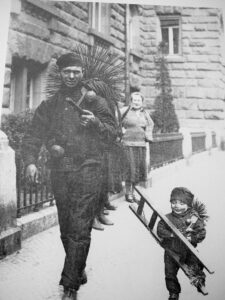
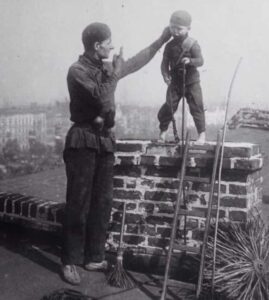 Perhaps one of the most questionable of all professions undertaken by children in the past was that of chimney sweeping. Not only were children exploited in this job, mostly because of their small stature, but since proper safety measures were not taken in those days, the children in those jobs had health problems for the rest of their lives, and very likely they died young. The use of children as chimney sweeps began in the late 1600s in England, after the Great Fire of London, which gutted the city. At that time, building codes changed, requiring chimneys to be much narrower than they were previously. The idea was to keep more of the sparks in than out.
Perhaps one of the most questionable of all professions undertaken by children in the past was that of chimney sweeping. Not only were children exploited in this job, mostly because of their small stature, but since proper safety measures were not taken in those days, the children in those jobs had health problems for the rest of their lives, and very likely they died young. The use of children as chimney sweeps began in the late 1600s in England, after the Great Fire of London, which gutted the city. At that time, building codes changed, requiring chimneys to be much narrower than they were previously. The idea was to keep more of the sparks in than out.
The new design brought with it a bigger problem…keeping the chimneys free of obstruction, which became more of a challenge and a priority. Amazingly, instead of someone inventing a tool for this purpose, children were employed as human chimney sweeps. Their small stature allowed them to go inside the chimneys and manually sweep away the soot. Thus practice went on for over 200 years, in spite of the deplorable conditions the children lived in, the horrible health effects they suffered, and the many injuries and fatalities resulting from related work hazards.
One former chimney sweep, James Seaward was interviewed in December 1909, by the Toronto Saturday Night, a Canadian publication. Seaward was living in Wokingham, where he had just been named alderman of the town’s Borough Council. Seaward was one of the fortunate few that were still alive after working as a chimney sweep for 58 years. He started when he was just six. Seaward tells how he “was only six years old when I went up my first chimney. I was an orphan and I fell into the hands of a chimney sweep, and a cruel master he was. I have known what it was to have straw lighted under me and pins stuck into the soles of my feet to force me up a chimney; and I have known, too, what it was to come down covered with blood and soot after climbing with my knees and elbows. No one knows the terrible cruelty inflicted on boys in those days. 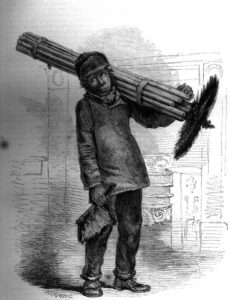
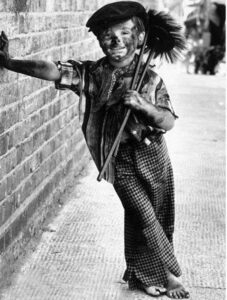 They used to be steeped in strong brine to harden their flesh. In my own case soda was used. Sometimes I used to have to stay up a difficult chimney five or six hours at a stretch.”
They used to be steeped in strong brine to harden their flesh. In my own case soda was used. Sometimes I used to have to stay up a difficult chimney five or six hours at a stretch.”
Somehow, Seaward managed to survive, and to actually prosper, even is such deplorable conditions. Thankfully, such cruelty was outlawed during the nineteenth century, with laws introduced regarding child labor. Those laws didn’t address chimney sweeps specifically, but rather child labor in general. The things that were allowed in the past concerning child labor were just awful, and orphans were specifically targeted, because they had little protections over their lives. They were often “adopted” out, but their “new parents” sometimes just wanted slave labor.
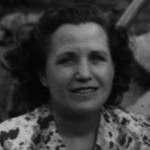 After a number of years of wondering what happened after the writing of my Aunt Bertha Schumacher Hallgren’s journals, or my reading of them…I have wondered about so many things. Bertha’s journal was so detailed and so interesting, but it left me feeling a little bit “at loose ends” about the lives of my aunt, and the Carl and Albertine Schumacher family, of which I am a part. I knew some things of course, like the fact that my Aunt Bertha had breast cancer, and that Aunt Mina had rheumatoid arthritis, as did her mom, my great grandma, Albertine Schumacher, and her siblings, my grandma, Anna Spencer and my Uncle Fred Schumacher. It left me wondering why it is that so often our lives come down to what illness we might have had? And then Aunt Bertha answers the question I had, when she said, “Only deep impressions are held in the conscious mind…ever present, while the sub-conscious may retain all experiences.” I suppose that our lives are marked by events, but surely there must be things that are more important that what disease a person had. Nevertheless, Aunt Bertha was “in my opinion” and that of my family, an excellent writer. She told the human side of history, and not just the historical events. Without the human side, history can be very boring, but you put in the hopes,
After a number of years of wondering what happened after the writing of my Aunt Bertha Schumacher Hallgren’s journals, or my reading of them…I have wondered about so many things. Bertha’s journal was so detailed and so interesting, but it left me feeling a little bit “at loose ends” about the lives of my aunt, and the Carl and Albertine Schumacher family, of which I am a part. I knew some things of course, like the fact that my Aunt Bertha had breast cancer, and that Aunt Mina had rheumatoid arthritis, as did her mom, my great grandma, Albertine Schumacher, and her siblings, my grandma, Anna Spencer and my Uncle Fred Schumacher. It left me wondering why it is that so often our lives come down to what illness we might have had? And then Aunt Bertha answers the question I had, when she said, “Only deep impressions are held in the conscious mind…ever present, while the sub-conscious may retain all experiences.” I suppose that our lives are marked by events, but surely there must be things that are more important that what disease a person had. Nevertheless, Aunt Bertha was “in my opinion” and that of my family, an excellent writer. She told the human side of history, and not just the historical events. Without the human side, history can be very boring, but you put in the hopes, 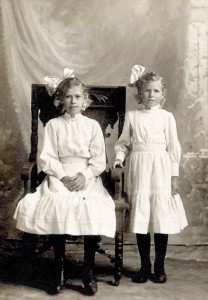 dreams, feelings, illnesses, and everyday lives of the people involved in the history being discussed. That is when history comes to life.
dreams, feelings, illnesses, and everyday lives of the people involved in the history being discussed. That is when history comes to life.
My Aunt Bertha and her sister, my Aunt Elsa took care of their parents who were ill, and in doing so, they gave up the chance to have a family of their own. They “adopted” their sister, Mina’s children as a replacement for children of their own. They both assumed that marriage was also one of those things they would have to give up, but in their latter years, both were given back that part of their lives, when they met and married their husbands, Arthur (Bertha) Hallgren and Frank (Elsa) Lawrence. Unfortunately, neither marriage lasted long, with Elsa’s ending in Frank’s death after 6 years, and Bertha’s ending in Arthur’s death after 2½ years.
Aunt Bertha fretted some when Elsa got married, not because Elsa was getting married. Bertha was happy for her, but she and Elsa had lived together all their lives to that point…42 years in all. Bertha said that it felt like a divorce…dividing up the household, “you take this and I’ll take that.” Bertha had never lived alone before. I’m sure she felt lonely…even before Elsa left. Then, after Elsa returned home when her husband passed away, when Bertha was ill, she worried about how Elsa would do when she was gone. Bertha was really very protective of her little sister, who had never lived alone. In the end, Elsa would live 17 years beyond Bertha’s life. She was ok, but I know she  missed Bertha terribly.
missed Bertha terribly.
I knew that my great grandparents were Christians, and had raised their children as Christians, and that teaching came down through the generations. Nevertheless, I was very moved by the way my aunt expressed her faith and trust in God. She knew that her life would not have been nearly as blessed as it was, if it had been lived without God in her life. I don’t know why it seems new to me, but I guess it’s because people don’t often talk about their faith, here she was, telling about the deep relationship with God. It was very moving, and sweet. Bertha was a woman who had been single for all but 2½ years of her life. She learned to depend on God…to trust Him. She loved her Lord, and I love that.
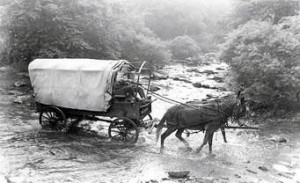 When the pioneers headed west, they were leaving the comforts of home behind. They would be traveling in covered wagons, with bushes for restrooms and rivers for bathtubs. Water was often scarce, so daily bathing was out of the question. You bathed when you came upon a creek or river, and drinking water was far too valuable to waste on such frivolous things as bathing. That said, anyone who has ever camped out where there was not a readily available water source, can tell you that people can get pretty stinky before they finally get to a place where they can bathe. I suppose that is why many of the women…if they were financially able, had things like lemon verbena to cover the inevitable odors. While things like toileting and bathing were inconveniences, they were things people learned to live with as they traveled west in search of a homestead, and they weren’t usually life threatening, other than transferring of germs from less than clean hands to food that was to be eaten.
When the pioneers headed west, they were leaving the comforts of home behind. They would be traveling in covered wagons, with bushes for restrooms and rivers for bathtubs. Water was often scarce, so daily bathing was out of the question. You bathed when you came upon a creek or river, and drinking water was far too valuable to waste on such frivolous things as bathing. That said, anyone who has ever camped out where there was not a readily available water source, can tell you that people can get pretty stinky before they finally get to a place where they can bathe. I suppose that is why many of the women…if they were financially able, had things like lemon verbena to cover the inevitable odors. While things like toileting and bathing were inconveniences, they were things people learned to live with as they traveled west in search of a homestead, and they weren’t usually life threatening, other than transferring of germs from less than clean hands to food that was to be eaten.
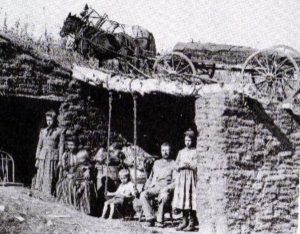
One of the most important things to know, of course, was what to do in the event of an emergency. An injury that is not take care of can quickly turn septic. And an illness that is treated in the wrong way, can bring death. That was one of the more difficult problems the pioneers faced. There were no doctors in nearby towns, and often there were no nearby rows either. They had to fend for themselves. And if they didn’t know what to do, people died. These days many people rely on a doctor or nurse for most illnesses, but the did not have that luxury. They had to be their own doctors and nurses.
The pioneers also had to know how to build their own homes, even if they had never really built a house before. Just because someone has lived in, or seen a house built, dies not mean that you automatically know 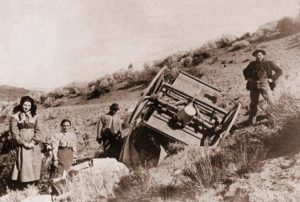 how to build one. They had to know how to fix a broken wagon or wagon wheel, and how to shoe a horse. These were not normally skills that just everyone knew. And they certainly aren’t the life skills that any of the students of today would be taught in a life skills class, but I suppose that life skills is a class that has to be suited to the times. These days, life skills classes might include cooking and sewing, budgeting, and child care. I suppose it was taken for granted that people knew those things before they headed west in the days of the pioneers. These days it seems that fewer and fewer have those skills. I used to think life skills was rather a wasted class, but I suppose that depending on what is taught, maybe it isn’t.
how to build one. They had to know how to fix a broken wagon or wagon wheel, and how to shoe a horse. These were not normally skills that just everyone knew. And they certainly aren’t the life skills that any of the students of today would be taught in a life skills class, but I suppose that life skills is a class that has to be suited to the times. These days, life skills classes might include cooking and sewing, budgeting, and child care. I suppose it was taken for granted that people knew those things before they headed west in the days of the pioneers. These days it seems that fewer and fewer have those skills. I used to think life skills was rather a wasted class, but I suppose that depending on what is taught, maybe it isn’t.
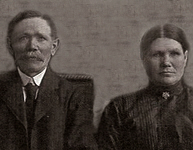 Every life and family has its ups and downs, and its major challenges. The way those challenges are handled tells you what kind of a family they really are. Sometimes, the losses, hardships, tragedies, or illnesses can break a family. They fall apart and they are unable to survive as a family. Even if that family survives, it is never the same again, but when a family is dedicated to each other, and wants the very best for each other, they will not only survive, but they will thrive. When a family is filled with love for each other, and they stubbornly refuse to give up, the truly miraculous can happen. Such a family can pick each other up after anything, and turn their lives around so that they are on solid footing again. And they will stick to it, no matter what sacrifices have to be made.
Every life and family has its ups and downs, and its major challenges. The way those challenges are handled tells you what kind of a family they really are. Sometimes, the losses, hardships, tragedies, or illnesses can break a family. They fall apart and they are unable to survive as a family. Even if that family survives, it is never the same again, but when a family is dedicated to each other, and wants the very best for each other, they will not only survive, but they will thrive. When a family is filled with love for each other, and they stubbornly refuse to give up, the truly miraculous can happen. Such a family can pick each other up after anything, and turn their lives around so that they are on solid footing again. And they will stick to it, no matter what sacrifices have to be made.
When my great grandmother, Henriette Schumacher was 50, she was struck with debilitating arthritis, that would put her in a wheel chair…off and on at first, but in the end, for fifteen years continuously until her death in 1936. In all, she would spend nineteen years in the wheel chair, during which time, my great grandfather, Carl Schumacher, along with his daughters, Bertha and Elsa took care of her. The girls were so dedicated, that they sacrificed their own chance to have children. Still, they never complained, for as Bertha said, “God gave them the children they missed, in Mina’s little daughter, Paula, and her four dear children.” Henriette never had the chance to feel like she was a burden, because of the love they showed toward her all those years. There were no regrets, because they still had their dear mother.
Bertha and Elsa spent many happy years in the company of Mina and John Spare. They had a great love for their sister and brother-in-law, and later their daughter and grandchildren. Their lives were richly blessed with their niece, and her little babies. After spending many years helping their dad care for their mom, it looked as if they would never marry, and the dream of having children of their own was now long gone. After their dad passed away on January 2, 1933, the girls continued to take care of their mom until her death on July 11, 1936. They stayed for a time in Fargo, North Dakota before moving to Boulder, Colorado. By 1948, both girls were married. Elsa married Frank Lawrence on April 29, 1944 in Boulder, Colorado. 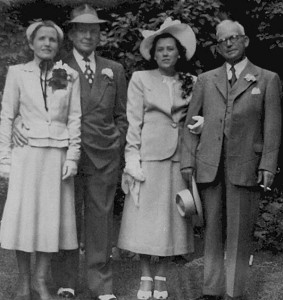 Bertha married Arthur Hallgren on May 12, 1948 in Boulder Colorado. But, the time for them to have children had come and gone. Then, Arthur Hallgren passed away just three years and seven months after they were married. It was a devastating blow, and Bertha would not marry again, but rather would spend her time with her family, especially her niece, Paula and her children; and writing her wonderful journal so that her legacy could be passed on to so many other family members. I don’t know when Elsa’s husband, Frank passed, but Bertha passed away December 22, 1984 and Elsa passed away November 23, 1992. They may not have had children, but their lives were very important to the family members whose lives were greatly enriched by the dedication of these two amazing women.
Bertha married Arthur Hallgren on May 12, 1948 in Boulder Colorado. But, the time for them to have children had come and gone. Then, Arthur Hallgren passed away just three years and seven months after they were married. It was a devastating blow, and Bertha would not marry again, but rather would spend her time with her family, especially her niece, Paula and her children; and writing her wonderful journal so that her legacy could be passed on to so many other family members. I don’t know when Elsa’s husband, Frank passed, but Bertha passed away December 22, 1984 and Elsa passed away November 23, 1992. They may not have had children, but their lives were very important to the family members whose lives were greatly enriched by the dedication of these two amazing women.

